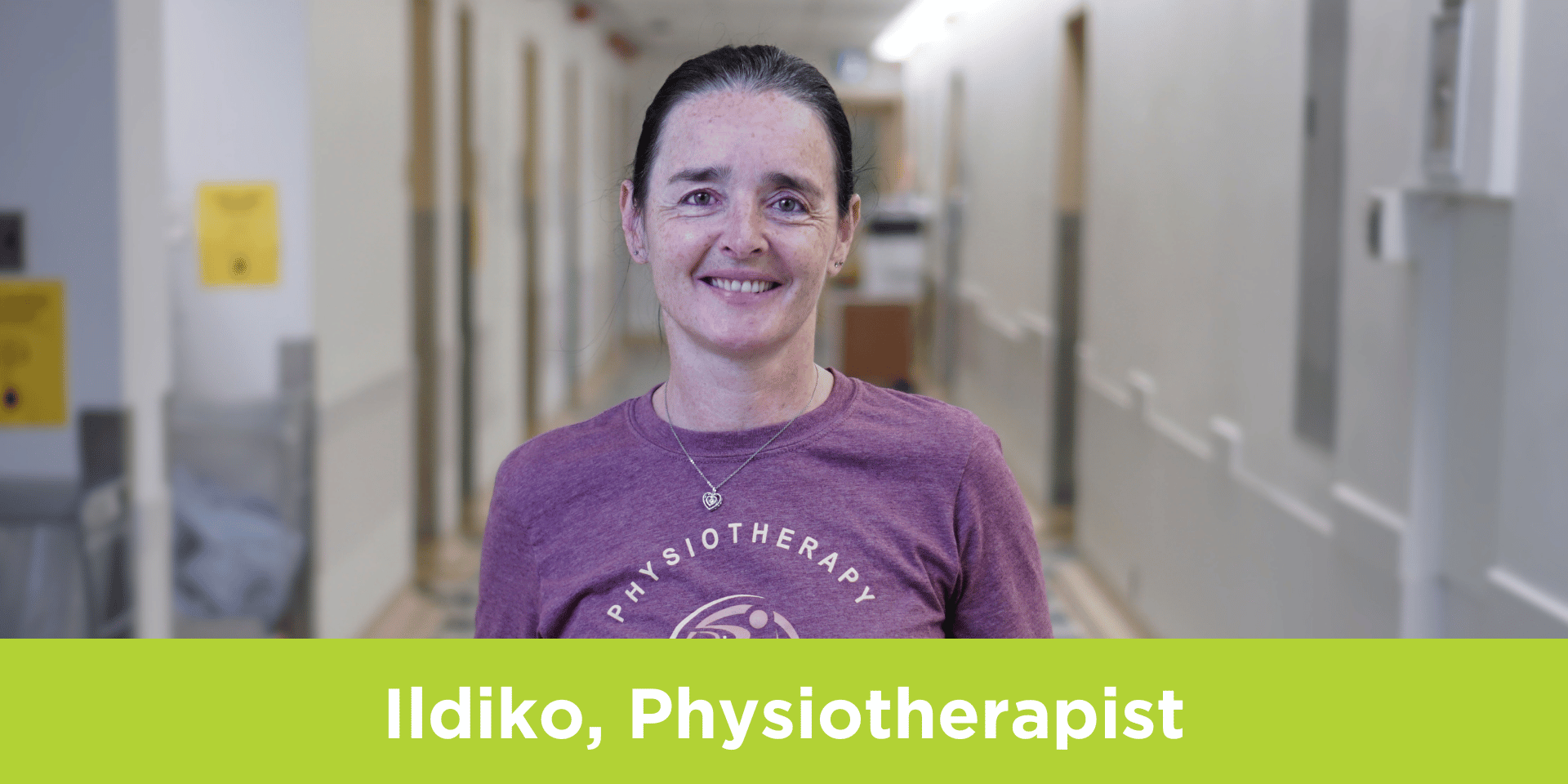Tell us about yourself!
My name is Ildiko Parniczky and I’m a physiotherapist (PT) at Michael Garron Hospital (MGH). I have been working at MGH since 2005.
What motivated you to become a physiotherapist?
As a child, I was always interested in medical science and I was always very active in sports. When I was 13 years old, I saw a physiotherapist working in a hospital in Budapest, Hungary. At that moment, I knew I wanted to become a physiotherapist.
I studied and graduated in Budapest. I then started working there as a physiotherapist in an acute hospital. When I came to Canada, I completed the Physiotherapy National Exam and started to work in both private clinics and hospitals.
Can you share your career path at MGH?
In 2005, MGH offered me a temporary full-time job to cover a maternity leave. I was fortunate enough to be offered a permanent position after that, and I have been working on the Medicine and Stroke Unit since 2006.
There are few things I have done and continue to do here at MGH other than being a PT:
- Since 2013, I’ve been a Clinical Instructor for PT students. I teach two placement students a year for four to five weeks each.
- Since 2016, I’ve been one of the centre coordinators for Clinical Education at MGH. I’m responsible for organizing, orienting and assisting with teaching PT students at the hospital.
- I’ve represented Inter-professional Practice (IPP) on the B3 Unit Council in the past and I hope to do so again in the future.
- I’ve initiated mobility training for nursing staff on the Psychiatric Unit.
- I’ve also been participating in Health Professional Advisory Committee (HPAC), representing the PT group.
What types of learning, mentorship or professional development opportunities have you had the opportunity to pursue since joining MGH?Since 2005, I’ve had a lot of learning opportunities. Here are a few to mention:
- Neuro-Developmental Treatment (NDT)/Bobath Certificate course
- American Physical Therapy Association (APTA) Credentialed Clinical Instructor Program
- Teaching for the learner course
- Teleconferences, in-services, Zoom meetings, etc.
- Yearly teaching by respiratory therapists (RTs) about O2 titration, oxygenations and suctioning
- Participated in “Lunch and Learn” meetings for those interested in ethical questions and medical assistance in dying (MAID)
- E-stroke education and AlphaFIM courses
What is the best part about your job?
Working with a highly educated inter-professional team is very rewarding. Having great conversations, while keeping both our senses of humour and professionalism, and supporting each other in every situation are all important to me. I love having daily conversations with my colleagues and advocating for my patients.
After being a physiotherapist for more than 25 years, the smallest amount of positive progress from my patients still gives me goosebumps. It could be my stroke patients maintaining independent sitting balancing at the edge of the bed or taking a few steps for the first time. It is being able to have meaningful conversations full of jokes with my patients with delirium or dementia; hearing their voice for the first time when they were unable to speak before; seeing the sparkle in their eyes when I shake their hand while they are being discharged from MGH. Even the memories of these occurrences give me goosebumps. It's an indescribable and humbling feeling.
I also love teaching and sharing my knowledge and skills with physiotherapy students. I have been a clinical instructor since 2010 and it’s one of my favourite parts of my job.
Could you share your most memorable experience while working here at MGH? What has stood out most to you?
Something memorable happens every day while working with patients. They can be good experiences or not so good experiences. I’m going to mention something that isn’t physiotherapy-related, but it was a very unique experience for me. One of my first Physiotherapy Month events was when the PTs and physical therapist assistants (PTA) went for a wine tasting day trip to Niagara Falls. It was very fun to get to know my colleagues beyond the walls of the hospital. Since then, we have done more team building events, and I hope we can organize a few more once the pandemic is over.
Do you have any advice for those who are starting out within your industry?
Physiotherapy is a job where you use your brain and body. In order to take care of others, you need to take care of yourself first. Never stop asking questions and learning. As long as you’re passionate, it is going to be an easy and wonderful profession. Use your knowledge, skills, common sense and sense of humour, and then the job will be eight hours of fun.
